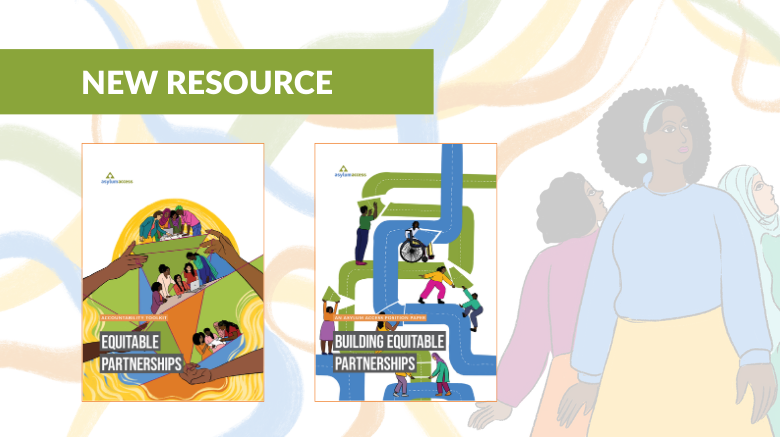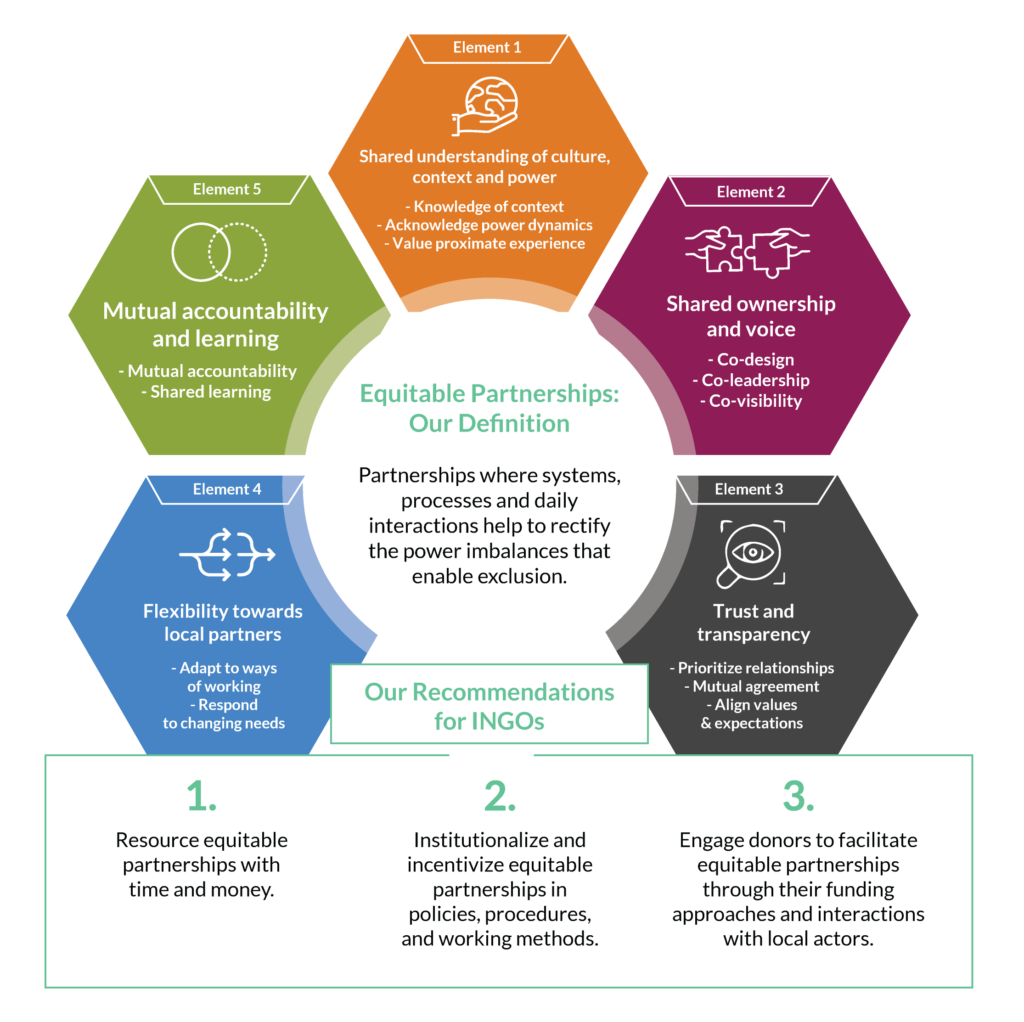During the workshop “Building Equitable Partnerships with Refugee-led organizations”, organized by Cohere, Asylum Access officially launched our new position paper and Accountability Toolkit on equitable partnerships. These resources offer a framework to strengthen accountability in partnerships with local civil society in ways that are rooted in equity, power-sharing, and uplifting local and refugee leadership.
“The growing focus on equitable partnerships in our sector demands action beyond discourse. We hope our toolkit addresses partnership inequities between INGOs and their local partners through self-assessment and practical methods, leading to collaborations built on mutual respect, fairly distributed resources and power, and equitable recognition,” explained Baqir Bayani, Partnerships Coordinator.
In December 2021, we launched our first Position Paper ‘Building Equitable Partnerships: Shifting Power in Forced Displacement’, which established the foundations of equitable partnerships. In 2023, as part of our accountability and commitment to Equitable Partnership, we underwent an external review of our current and past partnerships with local NGOs and refugee-led organizations (RLOs), looking back as far as 2019. Through this review, we listened to our partners and further expanded our understanding of what Equitable Partnership means to them. We reflected on those new learnings to build an updated version. Although the definition of equitable partnerships (“partnerships where systems, processes, and daily interactions help to rectify the power imbalances that enable exclusion”) did not change after the review, the process led to the development of five revised elements for equitable partnerships.
Accountability Toolkit Pilot Phase: An opportunity to collaborate
The independent review helped us develop the Accountability Toolkit, aimed at supporting institutions with resources and power to assess their partnerships with their civil society partners and guide them to make their partnerships more equitable.
The Accountability Toolkit includes two accountability “tools” that serve different, but complementary functions:
1. The EP Self Assessment Tool (EP-SAT): This is an internal, self-assessment tool that includes a checklist of questions that the partner with more resources and power needs to address relating to different aspects of the partnership as it develops.
2. The Joint Partnerships Assessment Framework (JPAT): This is a tool for joint use by all partners to regularly and jointly reflect on the progress of a partnership.
The Accountability Toolkit, which was recognized by UNHCR as a Global Compact Good Practice, is tailored to international non-governmental organizations (INGOs) partnering with local civil society organizations (CSOs). However, it can also be used by donors, multilateral organizations, regional and global networks, and even host community-led NGOs and refugee-led organizations in their partnerships with each other.
“We invite organizations who are interested in using, adapting, or replicating this tool to reach out to us to collaborate and share feedback, questions, and suggestions on how it can be strengthened. We really want this Toolkit to be an opportunity for joint learning and collaboration”,” said Deepa Nambiar, Director of Partnerships, during the launch. As for the position paper, she listed concrete examples of both how to build these partnerships and the important role of donors and INGOs in facilitating equitable partnerships through flexibility, resourcing, and commitment to internal learning journeys.
We are piloting the Accountability Toolkit in 2024. Following the pilot phase, we will incorporate the new learnings and release a revised version. We are hoping the revised version is the result of a joint effort with other organizations to support cross-sector learning and accountability toward equitable partnerships.
Why Do Equitable Partnerships Matter?
Research shows that when affected communities and proximate actors, especially RLOs, lead the way, responses are more effective, impactful, legitimate, and accountable. However, structural biases and racism have kept these leaders out of important decisions and funding streams. By building equitable partnerships, INGOs and multilateral organizations can help to rectify the power imbalances that enable exclusion.
During Cohere’s recent online workshop on this topic, our colleagues Deepa Nambiar, Baqir Bayani, and our partners and RRLI coalition members Mozhgan Moarefizadeh and Lublanc Pietro gave an overview of Equitable Partnerships, presented distinctions between traditional non-equitable partnership VS equitable partnership approaches, and talked about the importance of donor engagement and their flexibility in enabling equitable partnerships. Moderated by our former COO Diana Essex-Lettieri, the panel also shared case studies and recommendations for donors.
Connect with Us
We are available to provide a more in-depth overview of these tools and how to adapt them to your organizational needs, as well as training and peer exchanges on equitable partnerships. If you think our experiences and expertise can benefit you and your organization, please Contact Us to connect you to our Partnerships Team.


